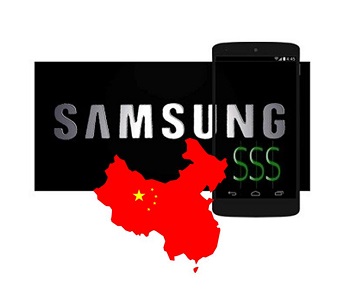A recent eMarketer study has shown that ebook readers are holding their own, but that was before Apple’s changes.
The iOS 9.3 update brought the “Night Shift” feature to iPhones and iPads and comes with the controversial claim that it has reduced the amount of blue light emitted by the mobile devices and may, therefore, help to push the ereader further toward being obsolete.
The reason is that while Apple says its devices may no longer interrupt sleep patterns, ebook readers still might.
The design of the “Night Shift” is meant to decrease the blue light emitted by the device. Those wavelengths of light are often blamed for disturbing people’s ability to sleep, so by removing them, the thought is that it will stop people from harming their sleep cycles through the use of tablets at bedtime. With this in mind, some have predicted that the use of the ereader, a device that is not backlit and that does not emit any blue light, will decline.
Some people have been using an ereader to read ebooks at bedtime in order to avoid wakefulness problems related to tablet use.
 Overall, most doctors and sleep specialists recommend that patients stop using any kinds of mobile devices for an hour to 90 minutes before they go to bed. That is meant to decrease exposure to blue light but also to the stimulation these gadgets can bring with their use. Many doctors also recommend that patients use only dim lighting throughout that same span of time in order to help to encourage the production of melatonin (a sleep-promoting hormone that is light sensitive).
Overall, most doctors and sleep specialists recommend that patients stop using any kinds of mobile devices for an hour to 90 minutes before they go to bed. That is meant to decrease exposure to blue light but also to the stimulation these gadgets can bring with their use. Many doctors also recommend that patients use only dim lighting throughout that same span of time in order to help to encourage the production of melatonin (a sleep-promoting hormone that is light sensitive).
For that reason, eink displays from dedicated ereaders have been seen as great ways to take advantage of a certain limited amount of internet connectivity, as well as the comfortable ability to read an ebook, such as a favorite young adult fiction novel or the latest murder mystery in a series you’re enjoying.
So far, eink ereader displays haven’t been connected with sleep struggles and have been very appealing to people who are trying their best to give themselves a restful night of sleep. What has yet to be seen is whether the Night Shift in combination with the iPad mini from Apple will be enough to replace ereaders by providing a full tablet experience without the blue light exposure.
Samsung brings its payment platform to China
Samsung Pay has officially launched in China with the aid of China UnionPay, one of the country’s largest banks. The mobile payments service has been tested somewhat extensively in South Korea and other markets, where it has found modest success. Samsung believes that the service will find a foothold in China, as many consumers are mobile-centric and interested in using their devices to shop for and purchase products.
Several companies are flocking to China to find success in mobile commerce
Samsung is the latest company to break into China’s mobile commerce market. This market has been growing quickly over the past few years, with several organizations working to find success in this sector. Companies like Apple have also come to China in order to make mobile payments more accessible to consumers. While foreign companies may see promise in the Chinese market, they may find it difficult to find the success they so desire. This is because of the massive companies, like Alibaba and Tencent, that have already established a foothold in the mobile payments space.
Samsung may find it difficult to compete with well established services
 Both WeChat and Alipay have become extremely popular among consumers in China. These services also have the support of prominent financial institutions, giving them the ability to connect with a wide variety of consumers throughout the country. Samsung and Apple lack this well established support, though they are backed by some of the country’s major banks. As such, they may find it difficult to promote their services over those being offered by larger players in the mobile commerce space.
Both WeChat and Alipay have become extremely popular among consumers in China. These services also have the support of prominent financial institutions, giving them the ability to connect with a wide variety of consumers throughout the country. Samsung and Apple lack this well established support, though they are backed by some of the country’s major banks. As such, they may find it difficult to promote their services over those being offered by larger players in the mobile commerce space.
Security features may allow Samsung Pay to find a foothold in China
Samsung Pay may find support among consumers because of its security features. Security, or lack thereof, has been a major concern for many consumers, which has prevented them from participating in the mobile payments space. Samsung Pay features support for a fingerprint scanner, which can be used to authenticate a transaction. This makes the service somewhat more secure than its competitors, though more companies are beginning to use biometric technology in order to make consumers comfortable with the idea of mobile payments.
 Overall, most doctors and sleep specialists recommend that patients stop using any kinds of mobile devices for an hour to 90 minutes before they go to bed. That is meant to decrease exposure to blue light but also to the stimulation these gadgets can bring with their use. Many doctors also recommend that patients use only dim lighting throughout that same span of time in order to help to encourage the production of melatonin (a sleep-promoting hormone that is light sensitive).
Overall, most doctors and sleep specialists recommend that patients stop using any kinds of mobile devices for an hour to 90 minutes before they go to bed. That is meant to decrease exposure to blue light but also to the stimulation these gadgets can bring with their use. Many doctors also recommend that patients use only dim lighting throughout that same span of time in order to help to encourage the production of melatonin (a sleep-promoting hormone that is light sensitive).
 Both WeChat and Alipay have become extremely popular among consumers in China. These services also have the support of prominent financial institutions, giving them the ability to connect with a wide variety of consumers throughout the country. Samsung and Apple lack this well established support, though they are backed by some of the country’s major banks. As such, they may find it difficult to promote their services over those being offered by larger players in the mobile commerce space.
Both WeChat and Alipay have become extremely popular among consumers in China. These services also have the support of prominent financial institutions, giving them the ability to connect with a wide variety of consumers throughout the country. Samsung and Apple lack this well established support, though they are backed by some of the country’s major banks. As such, they may find it difficult to promote their services over those being offered by larger players in the mobile commerce space.